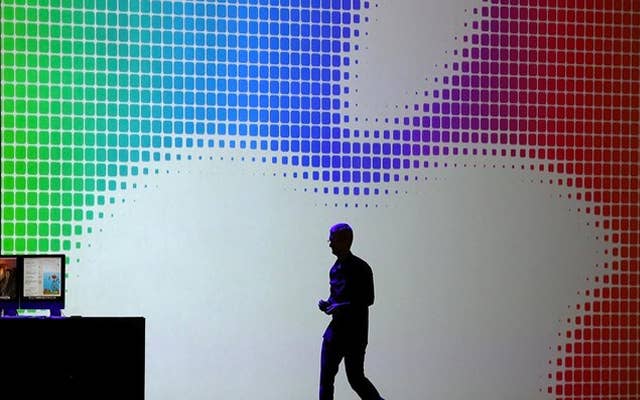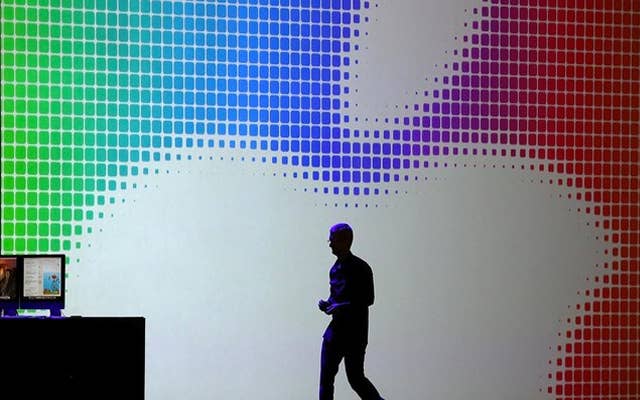
Data is always about behavior change. The desire to begin monitoring personal categories is inseparable from dissatisfaction with them, while the suspicion that things could be improved only seems to deepen the more you learn about it. Apple has been the vanguard of enabling personal data extraction by convincing people of the necessity of carrying small computers with them at all times.
Last week, the company announced an expansion of its capacity to orient human lives around information collected from apps like Fitbit, iHealth, and Withings’ blood pressure monitoring app into one central profile that can be shared with healthcare providers through HealthKit. Like most forms of entrepreneurial philanthropy, HealthKit claims for itself the noble goal of improving lives while giving individuals a greater sense of involvement in their own health. These are necessary justifications from an industry that depends on symbolic solutions instead of material ones, whose sale of for-profit devices and services must appear morally and ethically productive, rather than delusional compromises wrested from the consuming classes.
Apple and its healthcare app developers are attempting to triangulate the differing currencies driving the healthcare industry, convincing its users that increased data monitoring in their lives is a healthy thing to do.
The easiest way to improve the health of any given population would be to give everyone in it access to care, but this is a perennial impossibility since fighting illness and death are axiomatically unprofitable. At a certain point the cost of care for an individual eclipses their earning potential and accrued savings, leaving providers, patients, and family members in the paradoxical position of paying increasingly costly prices for postponement of a universal end. This industry can operate at a profit only in the medium term, but Apple and its healthcare app developers are attempting to triangulate the differing currencies driving the healthcare industry, convincing its users that increased data monitoring in their lives is a healthy thing to do, while providing a new generation of data-hungry entrepreneurs raw material to build their emerging products, while further securing Apple’s centrality to every aspect of a person’s life.
Speaking at the Solid tech conference in San Francisco last month, IBM’s Rod Smith and O’Reilly Media’s Tim O’Reilly predicted that the emerging network of data-extracting devices like iPhones, Google Glass, and Internet-connected home appliances would be driven by the insurance industry in the same way that the Internet was shaped by advertising. IBM already runs a program called Healthy Living Rebates, which offers Fitbit trackers to employees and issues rewards and discounts to those behaving in “healthy” habits. Fitbit has an entire division dedicated to selling its wrist-mounted data harvesters to corporations seeking to build “Corporate Wellness Solutions” for its employees.

Our conception of health is structured around the financial mechanisms of insurance companies, in which small drops of ego gratification are distributed to people based on accepting lifestyles that are least likely to result in financial burden to insurance providers, something which their employers and co-conspirators in the health insurance racket affirm through rewards programs and the soft social prejudices that emerge from people who think of themselves as responsible for comporting with a system of best practices. Quality of life has been redefined to mean lifestyles least costly to the systems who have made an industry of prolonging it, which only deepen a person’s dependence on other industries of consumption, creating a cult of self-care adherents who depend on there being kale, salmon steaks, and elliptical machines in New Mexico or North Dakota.
Meanwhile, the empirical fundaments of “health” remain contentious and prone to wild shifts and fundamental reversals. Writing for Jacobin, Llewllyn Hinkes-Jones argues this fundamental instability has been driven by increasing privatization of both research and healthcare entrepreneurialism, in which university research is funded by for-profit drug manufacturers, which skews the sorts of research that ends up being done while claiming commercial copyright of all new discoveries, ensuring the costs of healthcare rise at exponential rates that put further pressure on individuals to bear their costs of the industry’s finance-driven inefficiencies. Unsurprisingly, endemic amounts of error and irreproducibility have troubled scientific studies that drive public perception of what is “healthy,” with retractions having risen tenfold since the 1970s.
As Hinkes-Jones notes, the conceptual basis behind the theory of antioxidants and their role in supplemental vitamins industry has been discredited, the health benefits of omega-3 fatty acids have been called into question, and the wisdom behind regular mammograms is also contested with a study from the Canadian National Breast Screening showing no decline in breast cancer mortality rates even from regular mammograms. The emergence of predictive genomics to anticipate health issues has a similarly lousy record. In a recent profile of 23andMe-founder Anne Wojcicki, New York magazine’s Lisa Miller described the wonky results of her own reading, which got her eye color wrong, erroneously said she was lactose intolerant, and said she had a significantly higher chance of heart disease when in actuality she has lower-than-average cholesterol, blood pressure, and no family history of heart issues.

HealthKit creates a structure to amplify contested best guesses with no clinical guarantee behind them, putting pressure on individuals to internalize the responsibility of the systemic dysfunctions surrounding them. And this conception of individual-driven health consciousness often ignores the emotional underpinnings of “unhealthy” choices, which address a basic emotional despondency for people living in bleak economic conditions from which there is often no escape. It’s hard to muster the energy to think up a meal to cook with the exhaustion of working two or three jobs for hourly pay and no benefits, living under a cloud of perpetual fear that tomorrow may be the day the catastrophic layoff arrives. It is conceivable that people living under these conditions could still wake up an hour early before work to stretch and exercise three or four days a week, while taking public transportation the extra 20-30 minutes to the leafy greens grocery store on the other side of town, but over the weeks and months the emotional endurance and discipline required for these individual choices fray, while the empirical basis for them shifts to accommodate a new speculative heath fad—be it crossfit, quinoa or master cleanses.
With HealthKit, Apple has created a means to not just entrench this class-rotten phenomenon, but deepened it by creating an always-accessible intermediary to not only reward those predisposed to following the system’s instructions but punish those unwilling or unable to, justifying higher insurance premiums or cost penalties for those working under the harshest social and economic conditions. HealthKit creates a tool that seems to liberate the individual by allowing her more immediate access to empirical guidelines that demonstrate her flaws. HealthKit is a digital shackle, binding people to the structure of externally imposed guidelines while further alienating them from the untrustworthy and prejudicial processes that create them. Our freedom of choice in the age of digital data is coming to mean only the ability to choose the brand of our personal compliance devices. Apple remains the market leader in convincing people to comply to other people’s standards in the name of human progress, and HealthKit promises to further expand the scope of human life over which their artificial standards will be given reign.

